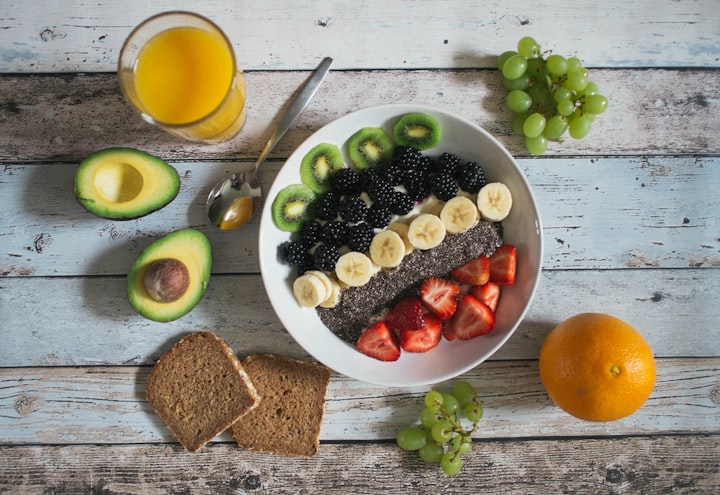
Increasing your daily fiber intake is not as hard as you may think. With a few targeted recipes, you can incorporate more fiber into your diet. If you're looking for ways to boost your daily fiber intake, you may be surprised to learn that there are many easy and delicious ways to do so. Fruits, whole grains, and vegetables are all excellent sources of fiber. Aim to eat at least two servings a day. Greek yogurt topped with fresh blackberries and half a cup of navy beans are two examples of simple, delicious, and healthy ways to get your daily fiber fix.
What is fiber anyway?
Fiber is a type of roughage that is not broken down by human digestive enzymes. It has a diverse chemical composition, solubility, fermentability, and viscosity, and can be found in all forms of plant matter. Their different properties determine how they are processed in the body. In this article, we will explore the benefits of fiber.
This essential nutrient can help your body feel full faster and has many other health benefits. Fiber is naturally found in food, but most people don't get enough of this substance in their diet. There are two types of fiber: soluble fiber and insoluble fiber. Soluble fiber is made of carbohydrates that dissolve in water, like fruits, vegetables, and grains. Insoluble fiber, on the other hand, comes from plant cell walls and is not digested by the body. These two types of fiber are combined to form dietary fiber.
Depending on age, men and women should aim to consume 25 to 35 grams of dietary fiber each day. The amount of soluble fiber is around 10 grams. For instance, you can include 14 grams of fiber in 1,000 calories by eating 6 ounces of whole grains. Additionally, you can include two cups of fruit and two cups of vegetables. The amount of fiber you need decreases as you age. The Institute of Medicine recommends that you consume at least twenty-five grams of fiber per day for men and thirty grams for women.
The best thing aside from reducing total blood cholesterol levels, fiber is also helpful in regulating blood sugar. The best sources of soluble fiber include oats, dried beans, and some fruits and vegetables. Most experts recommend consuming 25 to 35 grams of dietary fiber each day, with at least six to eight grams of soluble fiber. UCSF Health medical specialists reviewed this information and encourage patients to discuss the benefits of fiber with their doctors.
If you're trying to add more fiber to your diet, eat the skin and seeds instead of the pulp. Fruits and vegetables have more fiber than juice, so eat them whole. Fruit juices are a good choice, but avoid the clear ones as they contain no fiber at all. In addition, pulses are very effective sources of fiber. One cup of cooked pulses contains around 12 grams of fiber. Add them to salads, rice dishes, or side dishes.
Whole-grain bread and pasta are good sources of fiber. Instead of white rice, you can substitute brown or wild rice for it. Beans can add fiber to rice dishes (the combination of rice and beans is considered a complete meal because it includes all the 20 amino acids our body needs). Some fruits, like bananas, can also be added to salads. Also, a bowl of whole-grain bread or bran waffles topped with fruit can help you get your fiber intake in the morning. You can also try adding fruits and nuts to yogurt and oatmeal.
RDs and nutritionists can help you meet your fiber goals by giving specific recommendations. Ask about oatmeal brands, the type of whole grain or fruit you can eat, adding vegetables to your smoothies, and fiber additions. Extra fiber sources can be flaxseed, a granola bar with 5 grams of fiber, or a serving of nuts or seeds. You can get a full-blown discussion with your dietitian or RD.
While there are a lot of healthy foods you can eat, eating too much fiber can cause gastrointestinal problems. The dietary guideline limits 25 grams of fiber a day. If your daily intake exceeds this limit, you may experience constipation, bloating, and stomach aches. You should gradually increase your fiber intake. If you feel your intake is too high, try replacing one meal with a higher fiber option.
Eating more fiber will also improve your health, prevent constipation, and promote healthy gut function. It can also reduce the risk of developing diabetes by 18 percent. If you can reach a daily fiber goal of 26 grams a day, you may be able to enjoy many benefits, including better digestion.
It's better to prevent constipation than to treat it. And if you can add some to your meals regularly, you'll be on your way to improved health!
Get your fiber on!
About the Creator
AM
To help connect missing pieces and dots on perspectives of life and open new inspirations in your life.






Comments
There are no comments for this story
Be the first to respond and start the conversation.